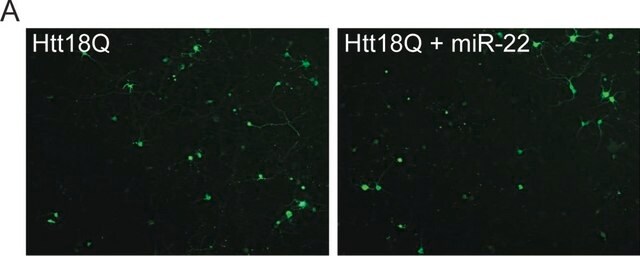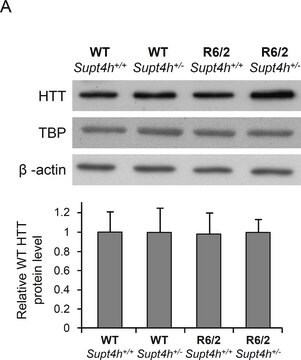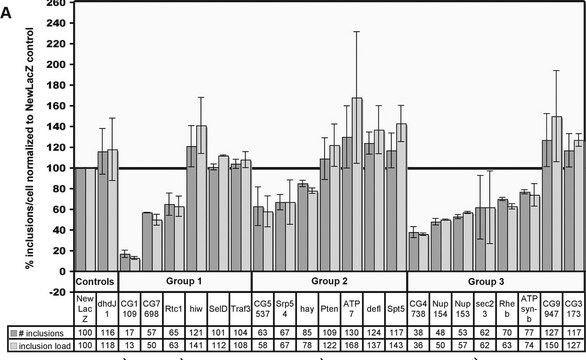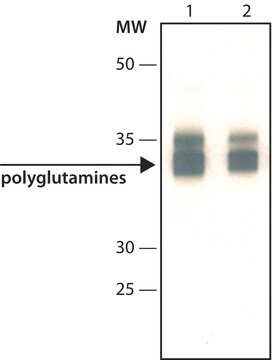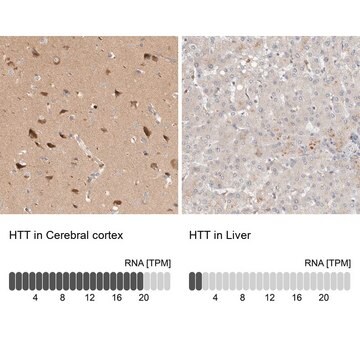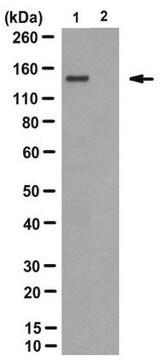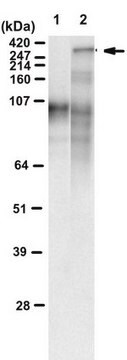H7540
Anti-Huntingtin (N-terminal) antibody produced in rabbit

affinity isolated antibody, buffered aqueous solution
Sinônimo(s):
Anti-HD, Anti-HTT, Anti-Huntington Disease, Anti-IT15
About This Item
Produtos recomendados
fonte biológica
rabbit
Nível de qualidade
conjugado
unconjugated
forma do anticorpo
affinity isolated antibody
tipo de produto de anticorpo
primary antibodies
clone
polyclonal
Formulário
buffered aqueous solution
peso molecular
antigen ~110 kDa
reatividade de espécies
mouse, human, rat
validação aprimorada
recombinant expression
Learn more about Antibody Enhanced Validation
concentração
~1.5 mg/mL
técnica(s)
western blot: 0.5-1.0 μg/mL using a HEK-293T cell lysate expressing a N-terminal fragment of human huntingtin
nº de adesão UniProt
Condições de expedição
dry ice
temperatura de armazenamento
−20°C
modificação pós-traducional do alvo
unmodified
Informações sobre genes
human ... HTT(3064)
mouse ... Htt(15194)
rat ... Htt(29424)
Descrição geral
Aplicação
- in magnetic bead-assisted immunopurification
- in western blotting
- in immunofluorescent staining
- in immunoblotting
Ações bioquímicas/fisiológicas
forma física
Exoneração de responsabilidade
Não está encontrando o produto certo?
Experimente o nosso Ferramenta de seleção de produtos.
recomendado
Código de classe de armazenamento
10 - Combustible liquids
Ponto de fulgor (°F)
Not applicable
Ponto de fulgor (°C)
Not applicable
Equipamento de proteção individual
Eyeshields, Gloves, multi-purpose combination respirator cartridge (US)
Escolha uma das versões mais recentes:
Certificados de análise (COA)
Não está vendo a versão correta?
Se precisar de uma versão específica, você pode procurar um certificado específico pelo número do lote ou da remessa.
Já possui este produto?
Encontre a documentação dos produtos que você adquiriu recentemente na biblioteca de documentos.
Nossa equipe de cientistas tem experiência em todas as áreas de pesquisa, incluindo Life Sciences, ciência de materiais, síntese química, cromatografia, química analítica e muitas outras.
Entre em contato com a assistência técnica